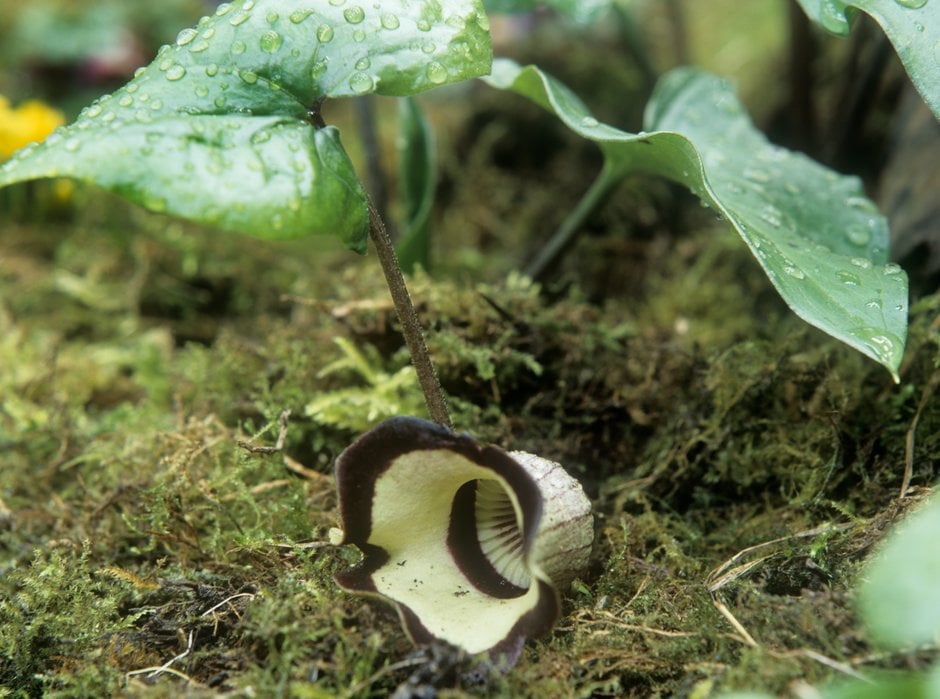Asarum campaniflorum
A rhizomatous, evergreen, mat-forming perennial to around 15cm high with shiny, dark green, heart-shaped leaves. Bell-shaped, solitary flowers are borne beneath the foliage at the base of the plant in late winter or early spring and are pale green to pale yellow with dark purple banding at the base and tips of the petals

Size
Ultimate height
0.1–0.5 metresTime to ultimate height
2–5 yearsUltimate spread
0.1–0.5 metresGrowing conditions
Moisture
Moist but well–drainedpH
Acid, NeutralColour & scent
| Stem | Flower | Foliage | Fruit | |
| Spring | Purple Green Yellow | Green | ||
|---|---|---|---|---|
| Summer | Green | |||
| Autumn | Green | |||
| Winter | Purple Green Yellow | Green |
Position
- Full shade
- Partial shade
Aspect
North–facing or West–facing or East–facing
Exposure
Sheltered Hardiness
H6Botanical details
- Family
- Aristolochiaceae
- Native to GB / Ireland
- No
- Foliage
- Evergreen
- Habit
- Matforming
- Potentially harmful
- TOXIC if eaten. Wear gloves and other protective equipment when handling. TOXIC to pets if eaten - see the HTA guide to potentially harmful plants for further information and useful contact numbers
- Genus
Asarum are evergreen or deciduous, rhizomatous perennials forming a mat of long-stalked, heart-shaped or kidney-shaped leaves, sometimes with attractive silver mottling, and curious flowers consisteng of a 3-lobed calyx, often in "earthy" colours. They are commonly referred to as wild gingers (they are not culinary gingers) but are so-called because their rhizomes have a similar spicy scent
- Name status
Correct
How to grow
Cultivation
Grows best in woodland conditions - a humus-rich, moist but well-drained, acid to neutral soil and full to partial shade
Propagation
Propagate by seed sown in containers as soon as ripe, or divide in early spring
Suggested planting locations and garden types
- Garden edging
- Ground cover
- Underplanting of roses and shrubs
Pruning
No pruning required
Pests
Diseases
Generally disease-free
Get involved
The Royal Horticultural Society is the UK’s leading gardening charity. We aim to enrich everyone’s life through plants, and make the UK a greener and more beautiful place.